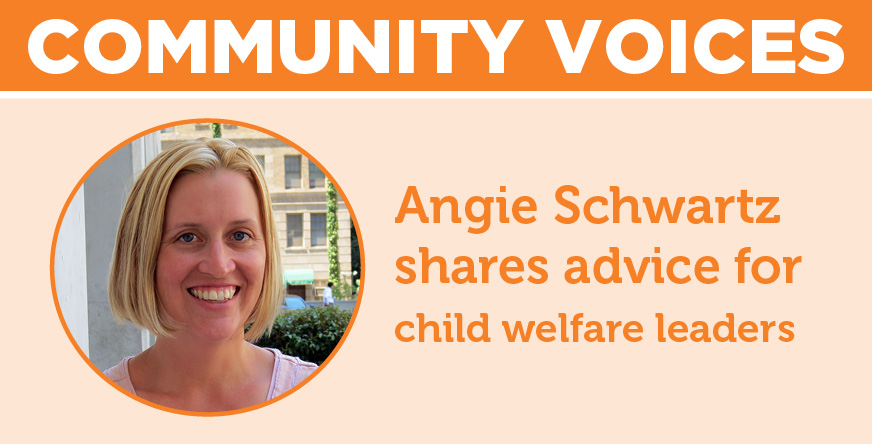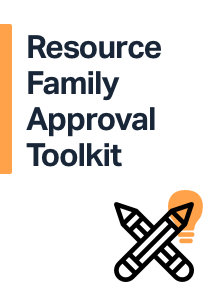 Recently, Los Angeles DCFS announced the search for a new director. We have asked some of our leading child welfare advocates to share their thoughts about the priorities and qualities they hope will factor into the hiring process. This week, we feature our policy director, Angie Schwartz. These are her words:
Recently, Los Angeles DCFS announced the search for a new director. We have asked some of our leading child welfare advocates to share their thoughts about the priorities and qualities they hope will factor into the hiring process. This week, we feature our policy director, Angie Schwartz. These are her words:
The director of the Department of Child and Family Services sets the tone and vision for the functioning of the child welfare system throughout Los Angeles. As such, they must be savvy about making strategic use of existing fiscal structures to create a system that is innovative and able to withstand shifting political winds. The director must also create a culture that puts our families first and meets the needs of families so that the children in their care can be successful.
In terms of systems-building, recent reforms provide counties a lot of room to be imaginative and think about how to create a structure based entirely on the needs of the kids, not on the type of placement they are in. Children no longer have to be in a certain type of facility to get the medical, educational and mental health attention they need to recover from trauma. The next director needs to be someone who is a real innovator and can take full advantage of the new opportunities within the system to design programs that are truly responsive to the needs of children across all placements. In particular, I hope to see DCFS leadership design programs that aim to ensure that children are stabilized in their first placement and with their relatives whenever possible, so that they are not moving from home to home, or “failing up” to a higher level of care because we have failed to meet their needs early on.
The new director has a lot of opportunity to build a better system and improve upon the advances made over the last several years. For better or worse, in California, counties have a lot of flexibility in how they are allowed to use their fiscal resources. As a result of child welfare realignment and Proposition 30, the state no longer plays the role they once did in dictating how state general fund dollars can be spent by the county. On top of that, Los Angeles has a tremendous amount of flexibility in how it spends federal dollars as a result of the Title IV-E waiver that Los Angeles has been participating in since 2007. The federal funding that Los Angeles receives is not tied to the individual child, as it is in counties that are not participating in the waiver. Instead, Los Angeles receives a set amount of federal funds based on caseloads during the 2005-2007 period. That means, for the short term, Los Angeles continues to have broad flexibility in how federal funds can be spent. However, the waivers are set to expire at the end of 2018, so DCFS leadership needs to consider that and find innovative ways to accommodate the next set of reforms or the reversion back to the previous funding structure.
I’d also like to see a director who promotes a culture of collaboration and partnership with people who are trying to help the system work – the families, the providers, and the advocates. Caregivers need to feel wanted and supported, not demonized or alienated. The system must be easy for families to navigate. No caregiver should spend hours on the phone trying to figure out how the system works, feeling frustrated or abandoned, as they too often tell us they do. I’d like to see a director who invests in training social workers to regard caregivers as their clients, empowering them with empathy and support to embolden them to continue working on behalf of the children they are raising.
We need to ask: Are we meeting the childcare needs of our caregivers? Are we meeting their financial needs? Are we providing the services families require? Are those services equally available in all placements? Are we supporting kids who have exited to adoption or guardianship in order to stabilize them in families? The director is responsible for setting up the structures to ensure that all of these questions, and more, can be answered in the affirmative.
Unfortunately, we can expect that policies under the Trump administration may have adverse effects on the child welfare system, and on vulnerable families. So we need a director who can anticipate those potential consequences and lay the groundwork to mitigate damage and protect children in family settings. Our response cannot be scaling back funding, services or supports for children and families in need. Our safety net for vulnerable children is already tattered, so we need a director with the knowledge, insight, and imagination to plan ahead to reduce the possibility of further damage and promote the needs of children so that they can grow up in stable, loving families.








